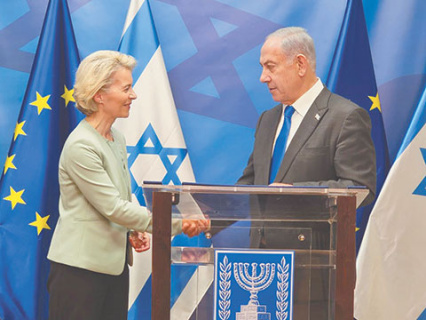
The European Commission, the EU’s executive arm, has unveiled a proposal for significant sanctions against Israel in response to its military offensive in the Gaza Strip. This move, aimed at pressuring Israel over its campaign against Hamas, places the nation in a similar diplomatic category as Russia, which is simultaneously facing another round of EU restrictions, signaling a potential seismic shift in the bloc’s foreign policy.
The proposed measures, announced by Commission President Ursula von der Leyen, are unprecedented in their scope. They include not only travel bans and asset freezes for extremist Israeli settlers and far-right government ministers but also a partial suspension of the EU-Israel Association Agreement. This would curtail free trade and could cost the Israeli economy an estimated €5.8 billion. Furthermore, the Commission suggests halting funding for joint scientific projects under the ‘Horizon Europe’ program for two years, with exemptions only for civil society support and the Yad Vashem Holocaust memorial.
However, the proposal faces a major political battle within the EU, as sanctions require the unanimous consent of all 27 member states. The Czech Republic has already voiced opposition, citing potential economic damage from disrupting the trade agreement. Germany and Hungary are expected to block the measures entirely, with Hungarian Prime Minister Viktor Orbán being a staunch supporter of his Israeli counterpart, Benjamin Netanyahu.
Achieving consensus on Israel will be far more difficult than for the bloc’s sanctions against Russia. While Hungary often raises initial objections to anti-Russian packages, it typically relents after securing concessions. In Israel’s case, the divisions are deeper, complicated by strong economic ties across the continent and the anticipated disapproval of the United States, a crucial ally.
The threat from Brussels is being taken seriously in Jerusalem. Ahead of the announcement, Prime Minister Netanyahu warned Israelis to prepare for ‘autarky,’ or economic self-sufficiency. ‘To survive, we need to guarantee that we can produce what is necessary for our national security, especially in the military industry,’ he stated, indicating a readiness for increased international isolation.
